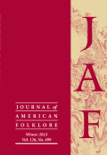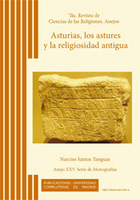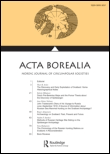
JOURNAL OF AMERICAN FOLKLORE
Scope & Guideline
Fostering Understanding through Folklore Studies
Introduction
Aims and Scopes
- Folklore and Cultural Identity:
The journal focuses on the ways folklore shapes and reflects cultural identities, exploring narratives that highlight community experiences, traditions, and the evolution of cultural practices. - Interdisciplinary Approaches:
Employing methodologies from anthropology, ethnomusicology, and cultural studies, the journal integrates various academic perspectives to enrich folklore research and its implications. - Social Justice and Advocacy:
A consistent theme is the exploration of folklore as a tool for social justice, addressing issues of representation, marginalization, and community empowerment through folklore practices. - Disability Studies in Folklore:
The journal uniquely incorporates disability studies into folklore research, examining how folklore narratives intersect with disability experiences and cultural perceptions. - Digital Folklore and Modern Media:
There is a growing emphasis on digital folklore and its manifestations in contemporary media, reflecting how technology influences the transmission and evolution of folklore.
Trending and Emerging
- Folklore and Disability:
A significant trend is the integration of disability studies into folklore research, highlighting how folklore narratives can reflect and influence perceptions of disability within various communities. - Impact of the COVID-19 Pandemic:
There is a rising focus on how the COVID-19 pandemic has altered folklore practices and narratives, with scholars examining new forms of storytelling and cultural expressions born out of crisis. - Digital Folklore and Social Media:
The journal is increasingly publishing work on digital folklore, analyzing how social media platforms shape folklore transmission and creation, emphasizing the relevance of folklore in the digital age. - Activism and Folklore:
Emerging themes explore the role of folklore in activism, particularly how storytelling and cultural expressions serve as powerful tools for social change and community resilience. - Environmental Folklore:
There is an increasing interest in the intersection of folklore and environmental issues, with scholars investigating how traditional narratives inform contemporary environmental movements and sustainability practices.
Declining or Waning
- Traditional Folklore Forms:
There has been a noticeable decrease in studies centered solely on traditional folklore forms, such as ballads and folk tales, as the journal shifts towards contemporary interpretations and applications of folklore. - Nationalistic Folklore Narratives:
The exploration of folklore as a means of reinforcing national identity has diminished, likely due to the increasing focus on global and multicultural perspectives in folklore studies. - Historical Folklore Studies:
Research that primarily focuses on historical accounts of folklore without engaging with their contemporary relevance seems to be less frequent, as scholars prioritize current social issues and lived experiences. - Regional Folklore Studies:
There is a decline in papers exclusively examining regional folklore, as the journal increasingly favors broader, transnational approaches that connect various cultural narratives.
Similar Journals

Ilu-Revista de Ciencias de las Religiones
Bridging Disciplines to Illuminate Spiritual PhenomenaIlu-Revista de Ciencias de las Religiones is a distinguished academic journal published by UNIV COMPLUTENSE MADRID, SERVICIO PUBLICACIONES, focusing on the interdisciplinary examination of religion through the lenses of both Philosophy and Religious Studies. With an ISSN of 1135-4712 and an E-ISSN of 1988-3269, this journal has established itself as a valuable resource within its field, evidenced by its consistent presence in Scopus rankings. In 2023, it holds a Q3 quartile rank in both Philosophy and Religious Studies, providing a platform for the dissemination of significant scholarly work. The journal aims to facilitate rigorous academic discussion and promote research that explores the complexities of religion in contemporary society. Although it operates under traditional access guidelines, its relevance is underscored by the range of topics covered, appealing to researchers, professionals, and students eager to deepen their understanding of religious phenomena. With a commitment to enhancing interdisciplinary dialogue, Ilu invites contributions that offer innovative insights and foster intellectual inquiry among diverse audiences.

FOLKLORE
Fostering Critical Dialogue on Folklore and TraditionFOLKLORE is a distinguished academic journal published by Routledge Journals, Taylor & Francis Ltd, concentrating on the rich tapestry of cultural expressions across time and context. With its ISSN 0015-587X and E-ISSN 1469-8315, this esteemed journal has been pivotal in the fields of Anthropology, Cultural Studies, and History, holding an impactful legacy since its inception in 1890. Currently ranking in the Q2 category in both Cultural Studies and History and Q3 in Anthropology, FOLKLORE is recognized for its significant contributions to the understanding of cultural phenomena and practices. Researchers and scholars will find this journal an invaluable resource, as it explores the intricate nuances of folklore, myth, and tradition with rigor and depth, catering to an audience keen on the interdisciplinary intersections of societal discourse. Although it is not an Open Access journal, it continues to foster critical discussions and extensive research on folklore, making it a vital platform for academic advancement in the humanities and social sciences.

Ezhegodnik Finno-Ugorskikh Issledovanii-Yearbook of Finno-Ugric Studies
Celebrating the Diversity of Finno-Ugric ScholarshipEzhegodnik Finno-Ugorskikh Issledovanii-Yearbook of Finno-Ugric Studies is a distinguished academic journal published by Udmurt State University, focusing on the vibrant field of Finno-Ugric studies. With its ISSN 2224-9443 and E-ISSN 2311-0333, this journal serves as a vital platform for researchers, scholars, and students to contribute and access high-quality, peer-reviewed work that explores the linguistic, cultural, and historical dimensions of Finno-Ugric peoples. This journal is particularly essential for those interested in interdisciplinary studies, as it often intersects with anthropology, linguistics, and cultural studies. Although currently not available as open access, it provides valuable insights for advancing academic discourse in this underrepresented area of study. The Yearbook is located in Izhevsk, Russia, and is committed to enriching the academic community, fostering collaboration, and promoting understanding of the Finno-Ugric heritage.

Vestnik Slavianskikh Kultur-Bulletin of Slavic Cultures-Scientific and Informational Journal
Celebrating the Legacy and Evolution of Slavic SocietiesVestnik Slavianskikh Kultur-Bulletin of Slavic Cultures is a distinguished scientific and informational journal published by the State Academy of Slavic Culture. This journal, with ISSN 2073-9567, plays a pivotal role in the field of Slavic studies, providing a platform for the dissemination of cutting-edge research, cultural discourse, and scholarly analysis pertaining to Slavic cultures and civilizations. The journal aims to foster a deeper understanding of Slavic heritage, literature, and the societal dynamics shaping these cultures today. Although currently lacking an open access model, it remains an important resource for researchers, professionals, and students interested in the rich tapestry of Slavic traditions and contemporary cultural phenomena. With its thoughtful curation of articles, Vestnik Slavianskikh Kultur is poised to contribute significantly to ongoing scholarly conversations within the humanities.

Filologicheskie Nauki-Nauchnye Doklady Vysshei Shkoly-Philological Sciences-Scientific Essays of Higher Education
Disseminating Knowledge in the Heart of Philological ScholarshipFilologicheskie Nauki-Nauchnye Doklady Vysshei Shkoly-Philological Sciences-Scientific Essays of Higher Education, with ISSN 2310-4287, is a distinguished academic journal published by INOIT ALMAVEST that focuses on the diverse field of philology, linguistics, and literary studies. Based in Moscow, Russia, this journal aims to disseminate innovative research findings and scholarly discussions that contribute to the advancement of philological scholarship. Although specific metrics such as impact factor and H-Index are currently unavailable, the journal is committed to maintaining high scholarly standards and fostering dialogue among academics, practitioners, and students. As a platform for peer-reviewed articles, it serves as an essential resource for those seeking to deepen their understanding of linguistic theory, literature analysis, and language education. With a robust emphasis on open-access dissemination, the journal encourages the sharing of knowledge and research insights to a global audience, thereby enhancing the visibility and accessibility of philological research.

Social Analysis
Unpacking the Dynamics of Human ExperienceSocial Analysis, an esteemed academic journal published by BERGHAHN JOURNALS, is at the forefront of interdisciplinary research, focusing on the dynamic intersections of anthropology, cultural studies, sociology, and the arts and humanities. Since its inception in 2002 and having transitioned to an Open Access model in 2020, the journal ensures that critical social research is widely accessible to scholars and the public alike. With an impressive Q1 ranking in Anthropology and cultural studies and holding a notable Q2 in Sociology and Political Science, it garners attention from a large academic audience, as evidenced by its high Scopus rankings: 10th in general arts and humanities and 153rd in cultural studies. This signifies its influential role in shaping contemporary discourse and providing a platform for innovative ideas and methodologies in understanding social phenomena. Based in Brooklyn, NY, the journal is dedicated to fostering scholarly dialogue and advancing the field, making it an essential resource for researchers, professionals, and students eager to engage with and contribute to the field of social analysis.

Slavia-Casopis pro Slovanskou Filologii
Illuminating the Path of Slavic Academic InquirySlavia-Casopis pro Slovanskou Filologii is an esteemed journal dedicated to the advancement of Slavic philology, published by the SLOVANSKY USTAV AKAD CESKE REPUBLIKY in the heart of the Czech Republic. With its ISSN: 0037-6736, the journal serves as a vital platform for scholarly exchange, embracing a rich academic tradition since its convergence years beginning in 2002. The journal has achieved notable recognition, with a Q3 ranking in Linguistics and Language and a Q2 in Literature and Literary Theory as of 2023, highlighting its contribution to these dynamic fields. Although it does not currently offer open access, its rigorous selection of articles ensures that it remains a crucial resource for researchers and practitioners alike, facilitating a deeper understanding of Slavic languages and literature. Scholars benefit from the journal's extensive research backdrop, enhanced by its current ranks in the Scopus database, underscoring its significant placement within the academic literature landscape. The editorial scope of Slavia promotes innovative inquiries that reflect cultural, historical, and theoretical perspectives endemic to Slavic studies, making it indispensable for professionals, students, and enthusiasts invested in the exploration of Slavic linguistic and literary heritage.

Acta Borealia
Unveiling Cultural Narratives of the Boreal RegionsActa Borealia is a prestigious academic journal published by ROUTLEDGE JOURNALS, TAYLOR & FRANCIS LTD, based in the United Kingdom. Since its inception in 1984, the journal has established itself as a vital platform for scholarly discourse in the fields of Anthropology, Cultural Studies, History, Sociology, and Political Science. With a commendable impact factor and placement in Q1 and Q2 quartiles across various categories, it demonstrates a strong commitment to high-quality research and innovative contributions. The journal is well-ranked in Scopus metrics, highlighting its influence and reach within the arts and humanities as well as social sciences. Acta Borealia publishes original research articles, reviews, and critical essays, making it an essential resource for researchers, professionals, and students alike seeking to enhance their understanding of northern studies and related fields. While securing access may require institutional login or subscription, the journal's rich content continues to foster interdisciplinary discussions that are critical for navigating complex social issues.

Acta Baltico-Slavica
Exploring the Rich Tapestry of Slavic ScholarshipActa Baltico-Slavica, an esteemed academic journal published by the Polish Academy of Sciences, Institute of Slavic Studies, serves as a vital platform for the exploration of Slavic cultures, languages, and historical narratives. Since its transition to Open Access in 2014, the journal has fostered inclusivity and accessibility, allowing researchers, professionals, and students to engage with cutting-edge scholarship in the fields of History, Linguistics and Language, and Literature and Literary Theory. With a commendable impact as indicated by its category quartile rankings (Q2 in History and Literature, Q3 in Linguistics), and Scopus rankings reflecting its significance within the academic community, Acta Baltico-Slavica not only contributes to the rich tapestry of scholarship surrounding the Baltic and Slavic regions but also encourages interdisciplinary dialogue. The journal’s commitment to advancing knowledge across its fields of study makes it a prominent destination for scholarly discourse and research inquiry.

FABULA
Fostering Interdisciplinary Insights in LiteratureFABULA is a distinguished academic journal published by WALTER DE GRUYTER GMBH, focused on the fields of Cultural Studies and Literature and Literary Theory. Since its inception in 1958, FABULA has contributed significantly to the discourse surrounding narrative theory, literary analysis, and cultural criticism, positioning itself as a vital platform for innovative research. With a Q2 ranking in Literature and Literary Theory and a Q3 ranking in Cultural Studies for 2023, the journal demonstrates its commitment to high-quality scholarship while fostering interdisciplinary dialogue among researchers and professionals. Although it currently does not offer Open Access options, its rigorous selection process ensures that published works meet the highest academic standards. Located in Berlin, Germany, FABULA remains a crucial resource for scholars seeking to deepen their understanding of the complexities inherent in narrative forms and their cultural implications, supporting ongoing research endeavors from 1964 through 2024.